|
|
Acknowledgement: This Snapshot topic may be very difficult for some to read, based on their own life experiences at this time. Grief and loss is an important topic to address, but it may not be the right time for each person. Please take care of your own mental health and know that
all Snapshots are archived, if the information may be more helpful at a later date. This information is meant to serve as a guide and is not meant to replace professional help if required.
|
|
|
|
|
|
|
|
|

|
We have passed the one year marker of living within the restrictions of a global pandemic. The impact of grief and loss is varied for individuals and families, but nevertheless it is present for all. During COVID-19, as visits have been limited to those within our household bubble; we have not been able to connect in person with family and friends whom we miss dearly. The school day has looked different as learning cohorts and safety protocol guidelines adjusted the amount of interaction students could have with friends.
|
|
|
|
There are also families who have lost a family member this year and the process of mourning was disrupted by not being able to come together in traditional ways to grieve. Some other aspects of loss include employment, inability to participate in team sports and group activities, and the cancellation of many celebrations.
But we know that we are more resilient when we have some tools and opportunities to connect with others. This month‘s snapshot offers some information and resources to support your family in navigating grief and loss.
|
| |
|
|
|
|
|
|
|
|
|
Grief is natural, and many people start to feel better as time passes. But some people need a bit of extra support from a professional to help them through a difficult period.
|
|
|
Grief is a normal response to not only loss of life, but drastic changes to daily routines and ways of life that usually bring us comfort and a feeling of stability. Common reactions include:
Shock, disbelief, or denial
Anxiety
Distress
Anger
Periods of sadness
Loss of sleep and loss of appetite
|
 |
|
|
 |
Adolescents may also experience grief in ways that are both similar to and different than children and adults. Adolescents may experience significant changes in their sleep patterns, isolate themselves more, frequently appear irritable or frustrated, withdraw from usual activities, or engage more frequently with technology. It is important for parents or caregivers to engage with their adolescents about their grief to promote healthy coping and acceptance.
|
|
|
|
|
|
|
|

| Many people experience grief and a sense of loss after the death of a loved one. But the ways in which they experience and express these feelings may differ across cultures. Culture is the mix of beliefs, values, behaviors, traditions, and rituals that members of a cultural group share.
As you read further it is important to remember that each culture has its own beliefs that influence how they cope with, and express their grief.
|
| |
|
|
|
|
|
It‘s OK to not have all the answers, but here are some general tips to keep the door open for communication:
Ask open ended questions. Give your child a chance to tell you what is bothering them the most – it may surprise you.
Talk openly about grief and loss. Help them label their true feelings and recognize that grief is normal.
|

|
|
|
As adolescents may feel ill at ease when expressing grief, you can consider asking them to draw a picture, make a picture collage, or write a story or poem about their loss. This provides an opportunity to talk about the feelings that are expressed in the activity.
Acknowledge their true feelings. Even if you don‘t fully understand, it‘s important to acknowledge that what your child feels is real and let them know it‘s O.K.
Offer reassurance. Things will get better. Avoid minimizing feelings.
|
|
|
|
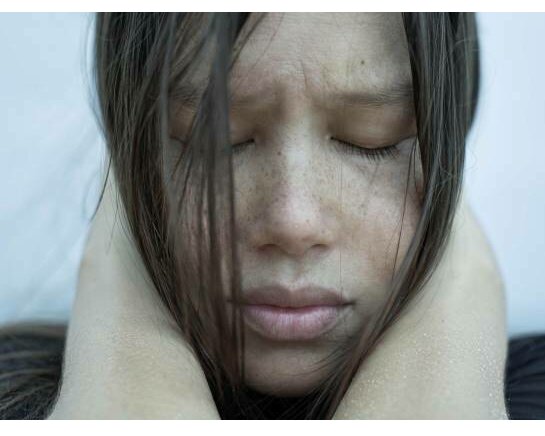
| To help a teen who is having a particularly hard time with their loss, explore the full spectrum of helping services in your community. School counselors, counselling services and private therapists are appropriate resources for some young people, while others may just need a little more time and attention from caring adult
See Learning Through Loss Programs and the Resource section at the end of the Snapshot.
|
| |
|
|
|
|
|
There are many reasons why healthy grieving can be especially difficult for teenagers. Some grieving teens may even behave in ways that seem inappropriate or frightening.
Be on the watch for:
|
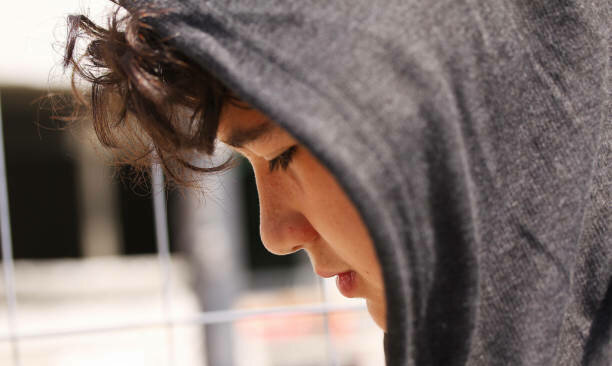
|
|
|
• symptoms of chronic depression, sleeping difficulties, restlessness and low self esteem
• academic failure or indifference to school related activities
• deteriortion of relationships with family and friends
• risk-taking behaviors such as drug and alcohol abuse, fighting, and sexual experimentation
• denying pain while at the same time acting overly strong or mature
See Resources at end of Snapshot
|
|
|
|
|
|
|
|
|
|
Brené Brown talks about how to deal with emotions such as grief, fear and anxiety during Coronavirus times. Viewer comments: Just what I needed, facing loss of my business and my home in a tiny town. Even though I have faith in my own abilities to get through this and find my way, I'm also going to allow my grief, sadness and anxiety to have a little cry.
|
| |
|
|
|
|
|
Due to the necessity of physical distancing, we have not had traditional access to the ritual and ceremonies of funerals, memorials, and gatherings. Many have not had the opportunity to visit loved ones in hospital or benefit from the healing power of connection with family. How do we deal our own grief as well as our children's during this pandemic?
Teens often turn to creativity to express themselves and make sense of their situation. Consider offering opportunities for creating art of all kinds, writing, journaling, making videos, writing songs, or simply listening to music. These can all be safe ways to express strong emotions.
|

|
|
|
Remember and talk about how the person lived rather than how they died. When someone dies of COVID-19, there can be a lot of hurt and frustration. Another challenging aspect is being continually reminded of the pandemic in daily life. It’s important to make time to focus on the life the person lived and what they meant to others.
During the pandemic funerals, memorials and celebration of life services look different than before COVID-19. No matter what your family decides to do, now and in the future, ask teens if they would like to attend and if they want to participate in the planning. They often have clear ideas about how they want to honor the person who died.
|
|
|
|

| If you are parenting or supporting a child who is grieving, one of the best ways to help is to take care of yourself. Think about the people and activities in your life that are sources of comfort and connection. By accessing support, you model ways for teens to do the same. Getting outside, drinking water, getting enough sleep, eating nourishing food, asking for help, and reaching out to your community are options that might still be accessible during the pandemic. See the bereavement services offered by Victoria Hospice in Resources section.
|
| |
|
|
|
|
|
|
|
|
Dr Lucy Hone is a resilience expert who shares the three strategies that got her through an unimaginable tragedy—and offers a profound insight on human suffering.
|
| |
|
|
|
|
|
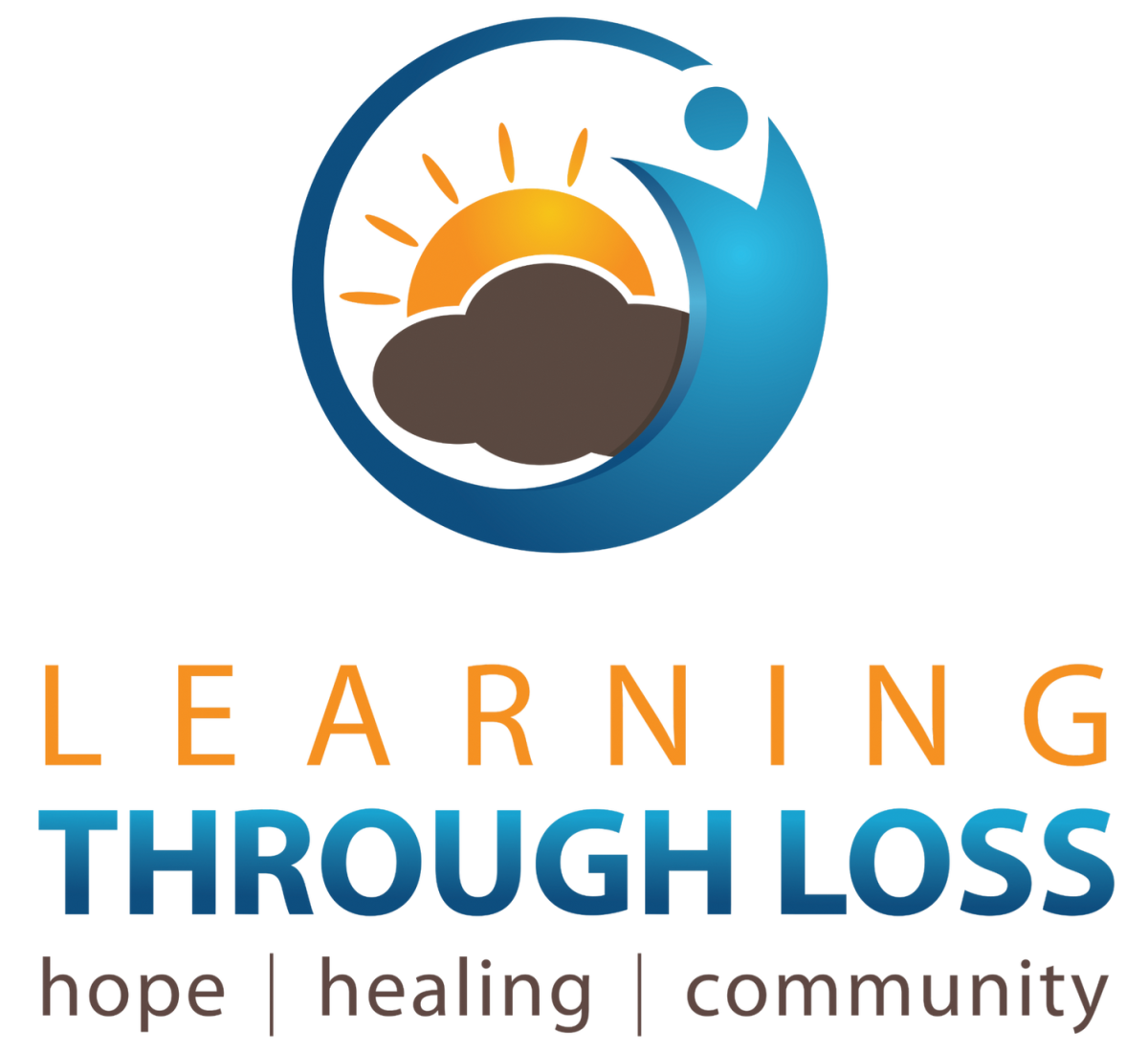 |
Friends of Living and Learning Through Loss understand that for youth it can be particularly difficult to navigate the challenges of grief, loss and bereavement. Our workshops and programs are designed to provide youth and young adults with the tools and skills to learn how to manage grief and loss in healthy, life-affirming ways.
|
|
|
|
The Learning Through Loss Group Program is a free 8 week, 16 hour peer support group that provides a safe place for youth between the ages of 13-24 who have been impacted by loss or significant change to find the support and resources to navigate and manage their grief. |
Short-term specialized grief counselling support is provided by registered clinical counsellors and available to eligible youth and young adults between the ages of 13-24 by referral. Fee for service.

|
| |
|
|
|
|
|
|
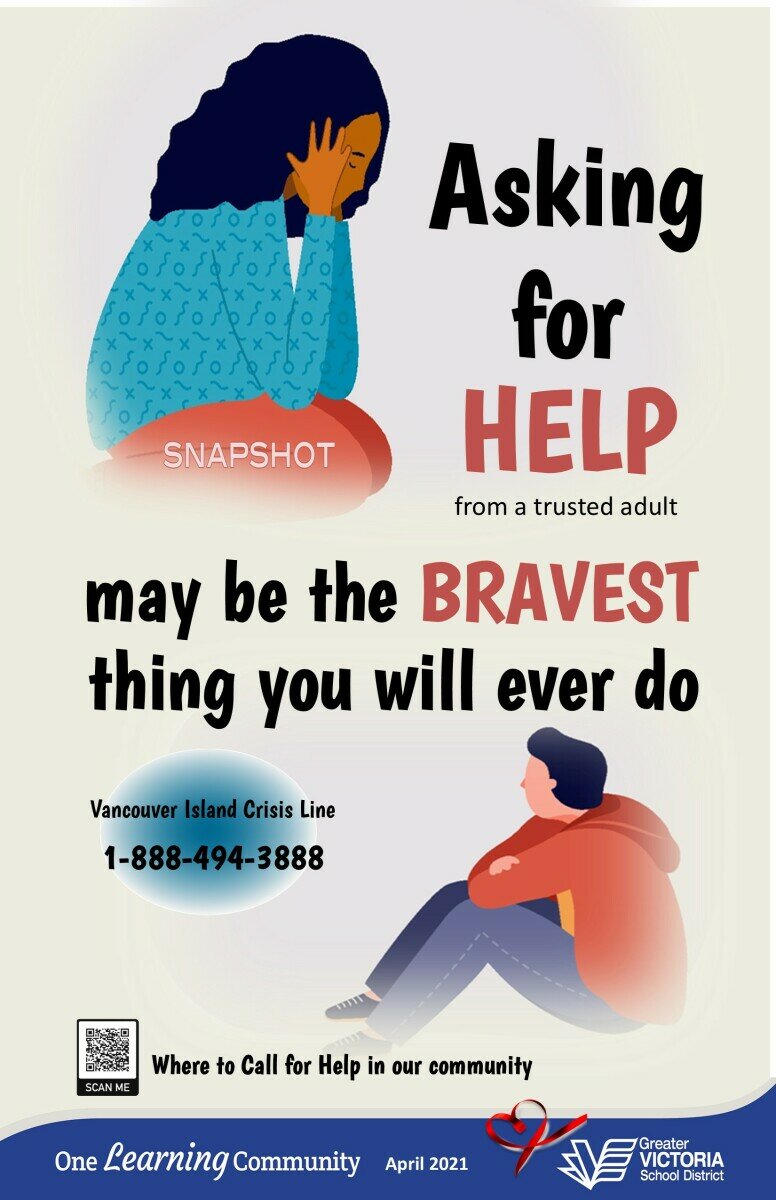
| During the middle and high school years many teenagers believe that asking for help is a sign of weakness. In a world of social media, peer pressure and feeling misunderstood they may fear the stigma more than the consequences of going without the help they need. Many times you will see the adolescents that are in the most difficult places trying to hide how hard things really are. The intent of this poster is to highlight the fact that bravery is having the courage to be vulnerable, share our struggles, and to ask for help when we need it from a trusted adult. It includes the Vancouver Island Crisis Line and a local
resource Where to Call for Help in Our Community
|
| |
|
|
|
|
|
|
Do you enjoy the monthly Snapshots?
Do you have suggestions on how to improve the Snapshots?
Do you have ideas for future topics?
Let us know!
We would love to hear from you!

|

|
| |
|
|
|
|
|
|
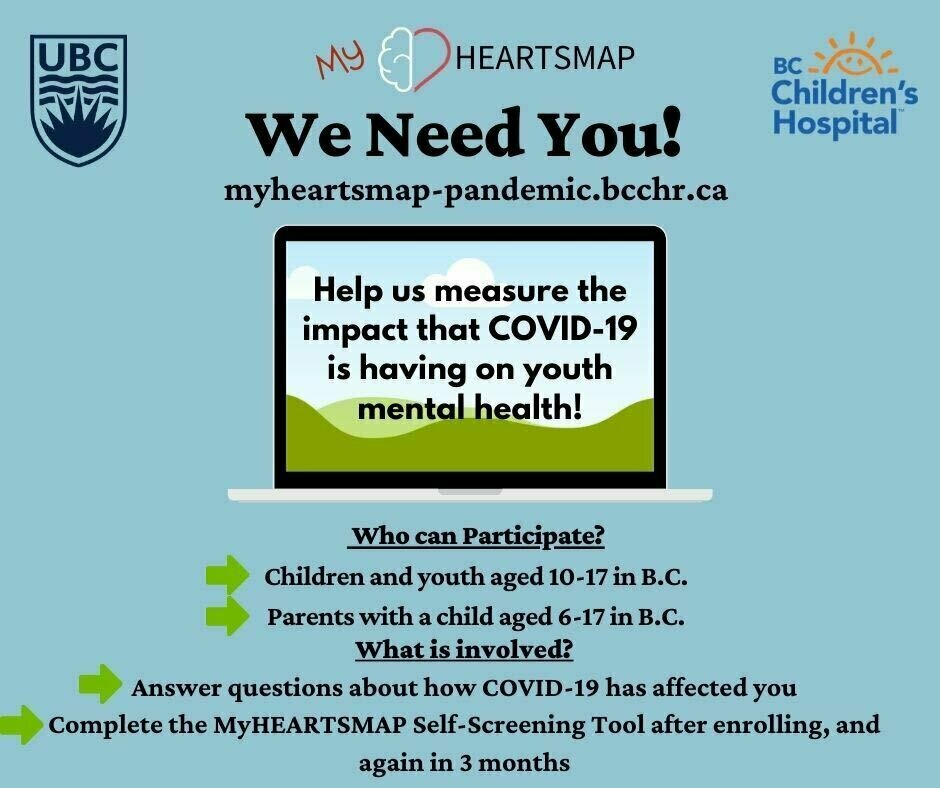
| The MyHEARTSMAP team needs your help to measure how much and in what ways the changes in our lives during the pandemic have affected the social and psychological wellness of our children and youth. Learning about our children's needs will help guide our provincial mental health resource planning.

|
| |
|
|
|
|
|
|
|
|
|
|
|